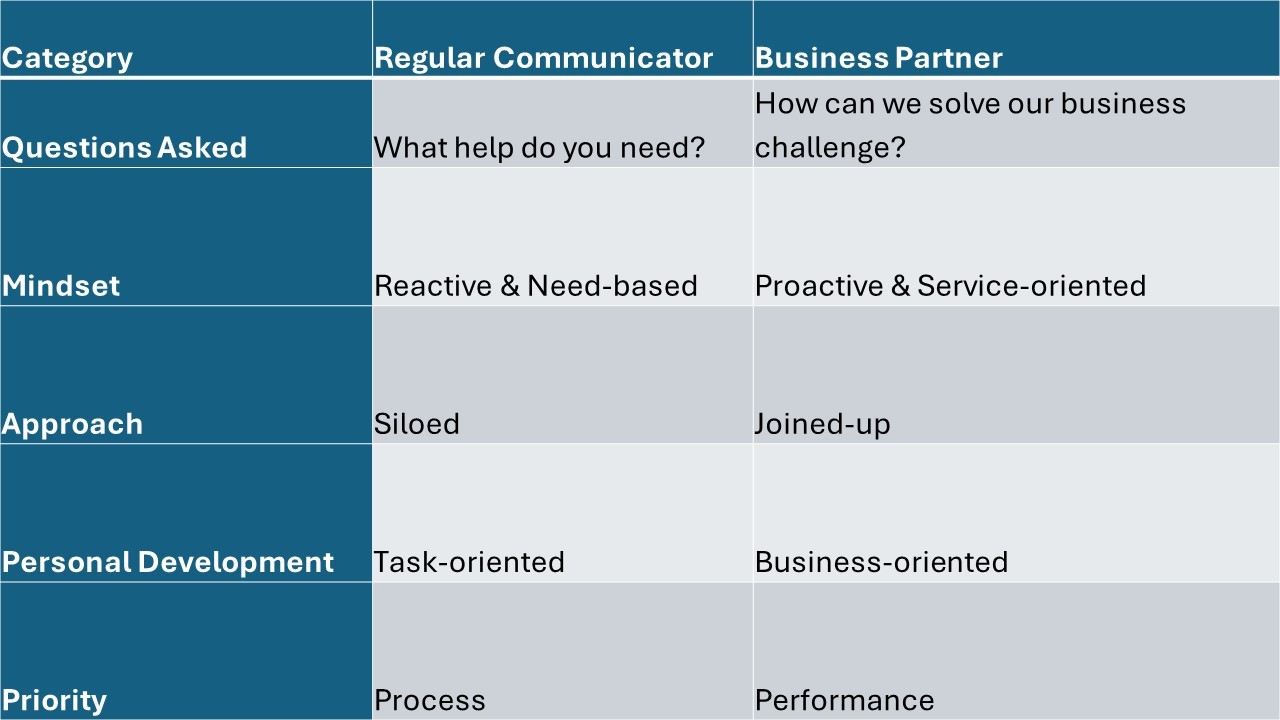The role of internal communication professionals extends far beyond disseminating information. They’re expected to be strategic advisors, adept planners, and effective implementers. Yet, amidst managing processes and decoding policies, many internal communicators find themselves struggling to reach their full potential. This is where business partnering holds the promise of transforming internal communications from a support function to a strategic asset within organizations.
Understanding Business Partnering
Business partnering, originally rooted in HR practices, has now transcended across various departments, including internal communications. At its core, it emphasizes four key elements: context, alignment, relationships, and shared success. For internal communicators, this approach entails being in sync with broader organizational goals, actively listening to business needs, and delivering tailored solutions while measuring impact for continuous improvement.
The Challenges Faced
Despite its potential benefits, internal communicators often grapple with the nuances of business partnering. Time constraints, lack of business acumen, and a focus on tactical rather than strategic outcomes hinder their ability to fully embrace this approach. So, what does it mean to be a business partner in internal communications?
- Knowing the Business: Internal communicators must strive to understand the business as thoroughly as managers and leaders, positioning themselves as go-to resources for communication needs.
- Building Strong Relationships: Fostering enduring partnerships between the communications team and business functions is crucial for success.
- Establishing Credibility: Creating centers of excellence and being recognized as credible experts elevates the role of internal communicators within the organization.
- Integrating Planning and Decision Making: Connecting the dots between various functions and aligning communication efforts with organizational objectives is paramount.
Behaviors of Effective Business Partners
To thrive as business partners in internal communications, professionals must exhibit certain behaviors.
- Proactivity: Anticipating the needs of the business and going the extra mile to provide proactive solutions.
- Service Mindset: Viewing employees as stakeholders and prioritizing their experiences with the same level of attention as external stakeholders.
- Jointed-Up Approach: Taking ownership of outcomes and aligning goals with the success of the business fosters trust and collaboration.
- Adaptability: Being open to agile ways of working and prioritizing performance over rigid processes.
- Continuous Learning: Investing in personal and professional growth to stay relevant and effective in a rapidly evolving landscape.
Contrasting Perspectives
A comparison between regular communicators and business partners underscores the transformative potential of embracing a business partnering mindset.

Embracing Change
Business partnering necessitates a shift in mindset – from reactive to proactive, from siloed to joined-up, and from task-oriented to business-oriented. Organizations increasingly demand authentic engagement, strategic insight, and tangible outcomes from their internal communicators. By embracing business partnering principles, internal communicators can position themselves as indispensable assets, driving organizational success from within.
The journey towards becoming effective business partners in internal communications requires a commitment to continual learning, relationship-building, and aligning communication efforts with overarching business objectives. Only by embracing this transformative approach can internal communicators truly fulfill their potential as strategic advisors and drivers of organizational success.
#businesspartnering #servicemindset #IC #proactive #business #relationships


